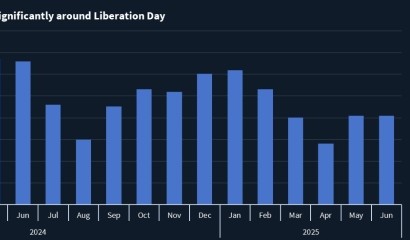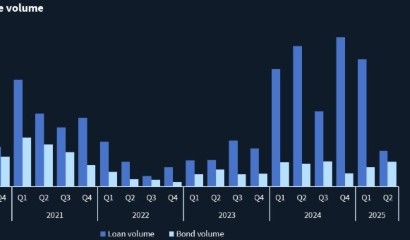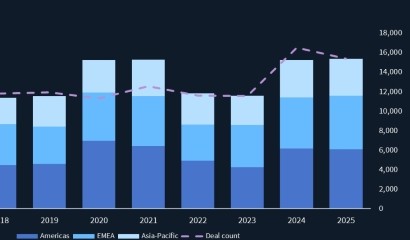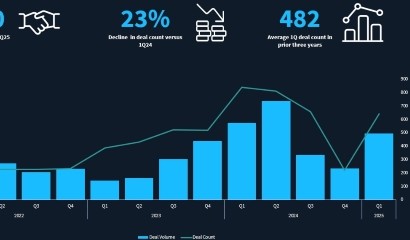CASE PROFILE: Oberweis Dairy files for Chapter 11 backed by USD 1m DIP, seeking to sell assets
Illinois-based ice cream and dairy products company Oberweis Dairy Inc filed for Chapter 11 bankruptcy protection eyeing a sale of its assets in a court-supervised sale process.
The company’s financial challenges stemmed from operational inefficiencies and shifting demand, and a prepetition deal to sell the business to an unnamed stalking horse bidder fell apart in March, leaving the debtors with no choice but to file for bankruptcy, according to a declaration of Oberweis Dairy President Adam Kraber. The cases will be funded by cash collateral and a USD 1m debtor-in-possession (DIP) financing facility provided by prepetition lender CIBC Bank USA.
A first day hearing is set for Thursday (18 April) at 9am CT in the US Bankruptcy Court for the Northern District of Illinois.
Debtwire Dockets: Oberweis Dairy Inc (Access Required)
The company
Oberweis Dairy manufactures, packages and distributes milk, ice cream and other dairy and non-dairy foods, Kraber said. The debtors’ retail business comprises three segments: 40 Oberweis Dairy-branded stores that serve ice cream and other foods, home delivery and consumer sales in grocery stores. Nine of the dairy store locations also include fast casual restaurants That Burger Joint or Woodgrain Pizzeria within the same building, Kraber said.
Source: Declaration of Adam Kraber
Most of Oberweis’ products are manufactured at the company’s 72,000-square-foot headquarters in North Aurora, Illinois. The company has been in operation since 1927, and it has been continuously owned and operated by four generations of the Oberweis family, Kraber said. The debtors have about 1,100 employees, most of whom work part-time in the dairy stores, and that number climbs to 1,500 as demand for ice cream picks up in the summer months, he said.
The debtors include Oberweis Dairy, The Oberweis Group Inc (TOGI), North Aurora Ice Cream LLC (NAIC), TOGI RE I LLC (TRI), Third Millennium Real Estate LLC (TMRE) and TOGI Brands LLC (Brands).
The debt
Oberweis owes about USD 14.2m in secured debt under bank loans with CIBC, with USD 12.7m outstanding and USD 1.5m under a letter of credit. The company also said it owes about USD 3.7m in secured debt to other parties related to financing agreements for assets like machinery, equipment and vehicles.
The descent
Kraber cited demand fluctuations and operational inefficiencies as factors contributing to Oberweis Dairy’s financial challenges. Consumers have shifted away from conventional milk and dairy products and increasingly favor dairy alternatives that are plant-based, high-protein and have extended shelf life. The debtors also made a series of “improvident” uses of its capital, such as under-investing in manufacturing equipment and over-investing in distribution capacity, which left the company unable to weather a period of diminishing sales, Kraber said.
The company also had other issues, including relaying on managers who lacked sufficient industry experience, “suboptimal” maintenance of the debtors’ books and records, failure to establish broker relationships to yield placements in national grocery chains, attempting to enter markets in Asia that did not ultimately result in any business and transitioning to using amber-colored bottles in its grocery retail segment, to which customers did not respond well, Kraber said. The debtors overspent on marketing channels, agreed to high minimum purchases from vendors, and responded too slowly to changing consumer trends, he added.
“There is nothing the ODI Business could have done to reverse this precipitous decline in consumer demand for its chief product,” Kraber said. “Yet—again in hindsight—if the [Oberweis Dairy] Business had been more agile, efficient, or innovative, it might have better withstood the decline. In reality, however, the ODI Business has been particularly vulnerable to changes in the marketplace for several years.”
Though the COVID-19 pandemic did not present a major challenge to Oberweis Dairy, labor, inventory dumps and maintenance consumed a significant portion of the company’s revenue, Kraber said. The company used the influx of capital to attempt to make the business stronger by boosting the home delivery segment, adding hundreds of new SKUs to include non-dairy items like steaks and seafood, as well as getting a new fleet of delivery trucks and new equipment, he said.
Those capital expenditures were ineffective, as the new product lines diluted the company’s reputation as a seller of premium dairy products, new delivery routes did not add nearly as many customers as expected and much of the new equipment went underutilized, Kraber asserted. The investments saddled the company with ongoing costs and complexities that detracted from the core business, and the business was forced to maintain, or service debt for, trucks and other equipment that it did not need, he said.
Oberweis Dairy also entered into a co-manufacturing relationship with a dairy in Dallas, Texas, to produce organic milk and expanded that relationship in early 2023 to include half-gallon sweet drinks and quart-sized milk bottles. The deal has imposed and still imposes high transportation costs, increased dumps of milk due to expired code dates and underutilization of the manufacturing plant at the company’s headquarters, as management underestimated the costs and logistical hurdles of transporting milk and empty bottles between Texas and Illinois, Kraber said.
Oberweis Dairy took steps to reverse its financial decline, including retaining financial consultant Fort Dearborn Partners in July 2023, cutting millions of dollars in annual operating costs, reducing its workforce, selling certain delivery routes and consolidating others, obtaining additional capital contributions from members and shareholders and selling equipment, he said. Those efforts “merely postponed” the business’ “inevitable deterioration,” he said.
Prior to filing for bankruptcy, Oberweis Dairy retained investment banker Livingstone Partners to conduct a marketing process. The debtors signed a letter of intent with an unnamed prospective stalking horse bidder to purchase the entire business, but the stalking horse decided to note proceed with the bid it had initially proposed, Kraber said. The debtors had no choice but to file for bankruptcy without a stalking horse in place as the company’s liquidity issues continued, he said. Oberweis Dairy is continuing negotiations with a prospective purchaser, which may result in the identification of a stalking horse bidder before the company files its bid procedures motion, Kraber asserted.
The DIP financing provided by CIBC comprises USD 400,000 to be made available on an interim basis and an additional USD 600,000 upon approval of the final DIP motion. The DIP bears interest at 10% per annum and will be secured by liens on substantially all of Oberweis Dairy’s assets, and those liens will be senior to the bank’s prepetition liens.
The advisors

















